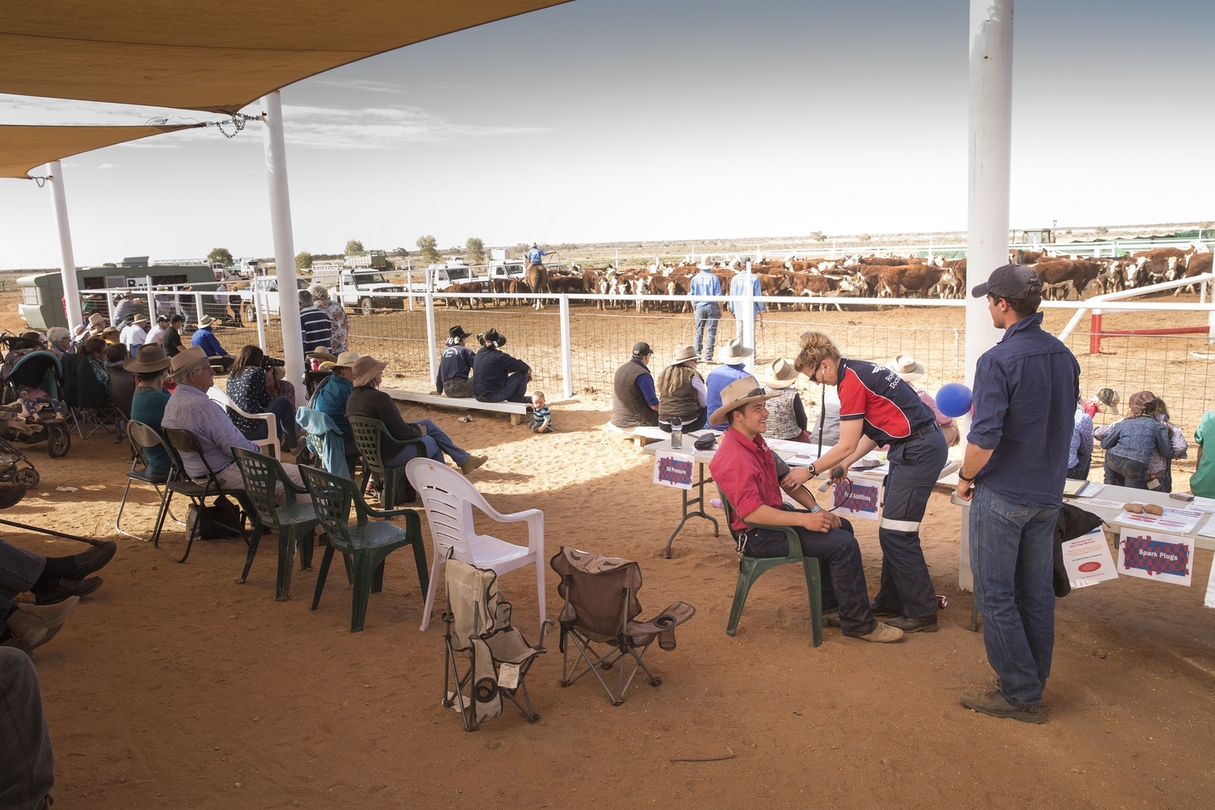The “Flying” Mental Health Nurse
The Royal Flying Doctor Service (RFDS) is a not-for-profit organisation delivering emergency aeromedical and essential primary health care services to South Australia and the Northern Territory, 24 hours a day, 7 days a week. It conducts more than 48,000 patient contacts every year – equivalent to one patient every 11 minutes. The Far North and North-West areas of South Australia, the driest state of Australia, are home to approximately 5,000 people, living in small isolated communities.
The ‘flying’ mental health nurse (MHN) is an integrated role within the RFDS. Located at the RFDS Port Augusta Base, this is a unique ‘flying’ clinical role providing specialist mental health care for people with severe and complex mental illness who live in remote and isolated areas.
The service provides access to specialist mental health nursing services for a hard to reach, under-serviced population and offers a specialised face-to-face mental health component to a ‘fly-in, fly-out’ general medical practice model. Flight nurses establish referral pathways, to and from RFDS services, specialist psychiatrists, psychologists, alcohol and other drug services, acute metropolitan and youth mental health services, such as support ‘step up’ to more acute care if and when required, and support ‘step down’ from acute metropolitan psychiatric services. The physical health inequities of people with severe and complex mental illness are also addressed through this service.

The MHN is the sole specialist mental health clinician integrated within the Port Augusta RFDS Primary Health Care Service (PHCS) team, which also includes four general medical practitioners and one medical registrar, a chronic disease Nurse, a community midwife, a general practice nurse and a breast care nurse. The clinical team is supported by a practice manager and an administration officer.
The RFDS primary health model of care provides care and services to well populations, at-risk groups, and people with mild, moderate or severe complex mental illness. Consultations are provided as part of scheduled PHCS team face-to-face ‘fly- in, fly-out’ weekday clinics and by telephone or video-conferencing.
RFDS service catchment area is approximately 840,000 square kilometres. The hard to reach populations within this area include families within rural and remote communities; individual workers living on cattle and pastoral stations, or in mining camps; Aboriginal people living in remote communities (more than 50% of the clients seen by the PHCS identify as Aboriginal or Torres Strait islander); and people with co-morbidities and poorly managed chronic diseases).
Some key activities of the flying mental health nurses include: supporting GPs to identify and intervene with people requiring mental health services; providing mental health nurse-led, evidence based interventions; identifying and activating referral pathways to other services within a stepped model of care; providing regular mental health follow-up and reviews; developing flexible processes that respond, in a people-centred approach, to mental health needs; contributing to development of policy and procedures in line with the National Mental Health Standards; and supporting the achievement of accreditation against the National Safety and Quality Health Service Standards.
The role ensures holistic continuity of care through direct referral and timely consultation with GPs and PHCS nurses within the team. Furthermore, the integration within the PHCS team supports de-stigmatisation of accessing mental health services, for example, services are offered along a continuum of physical and mental health care and all PHCS team wear the same uniform.
This service provides accessible, quality, people-centred, specialist mental health services that reduce the need for lengthy road travel and decrease unnecessary ‘fly out’ for mental health assessment.
Positive collegial relationships within the team as well as strong relationships and the ability to connect with stakeholders and other networks has supported the growth of these roles and allowed the flying mental health nurses to deliver the level of service that meets the needs of individuals and communities.

